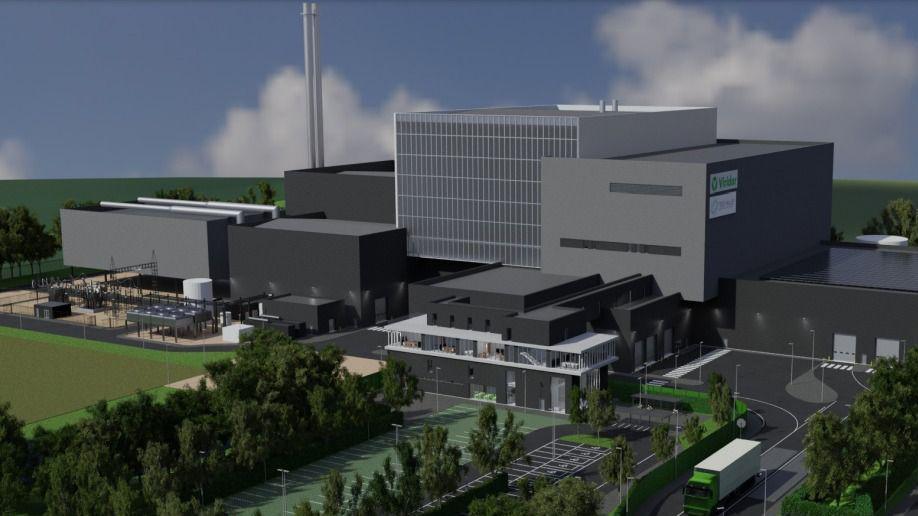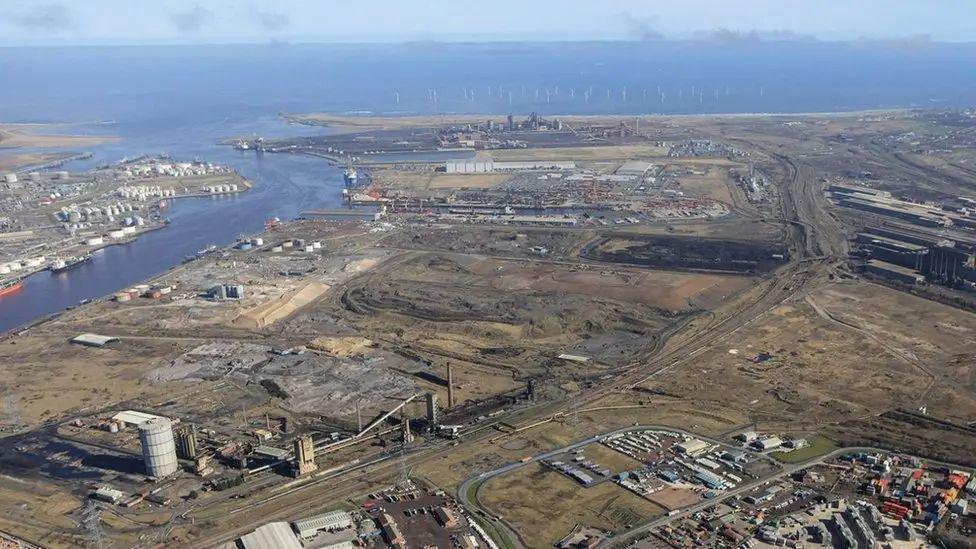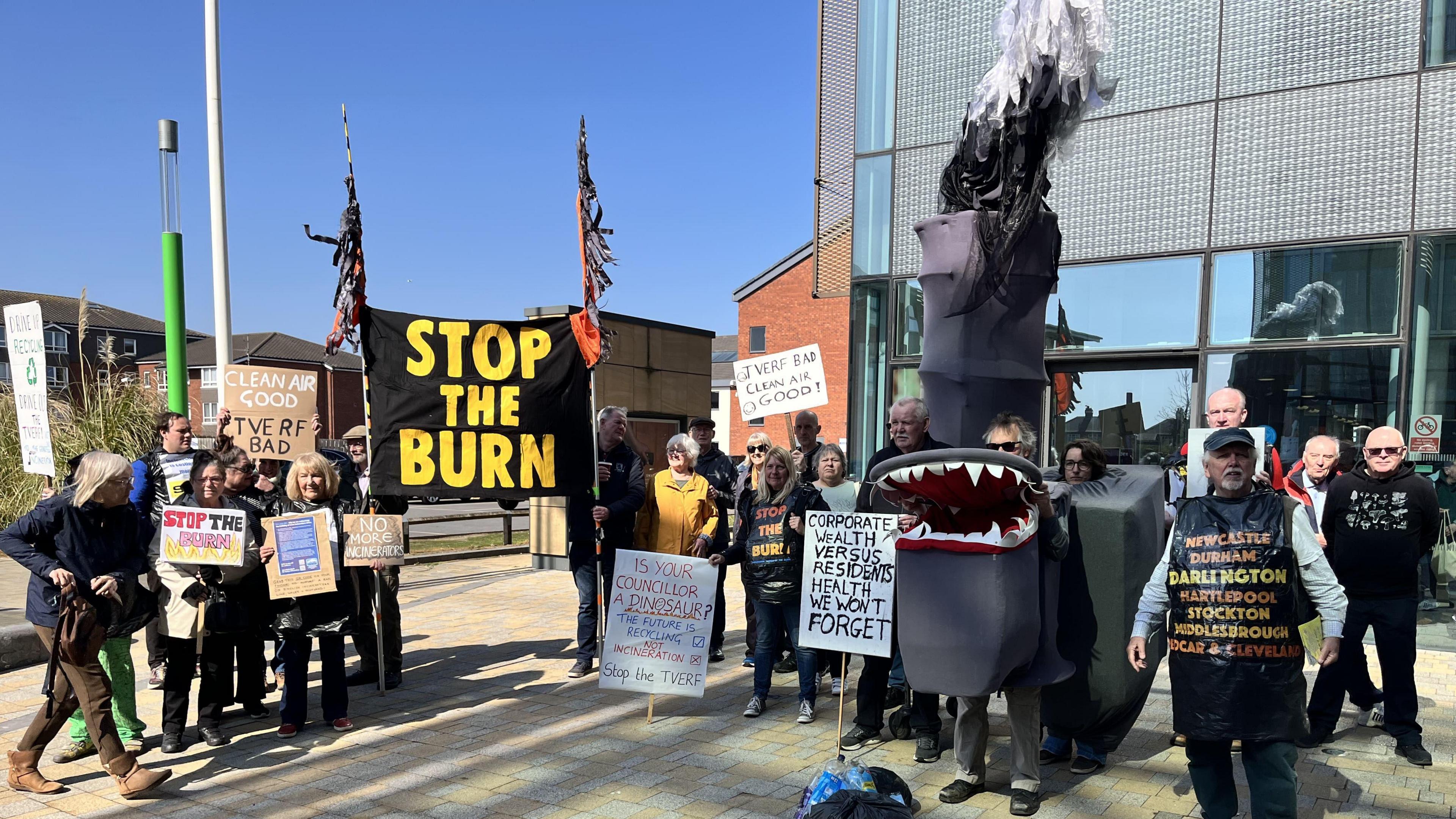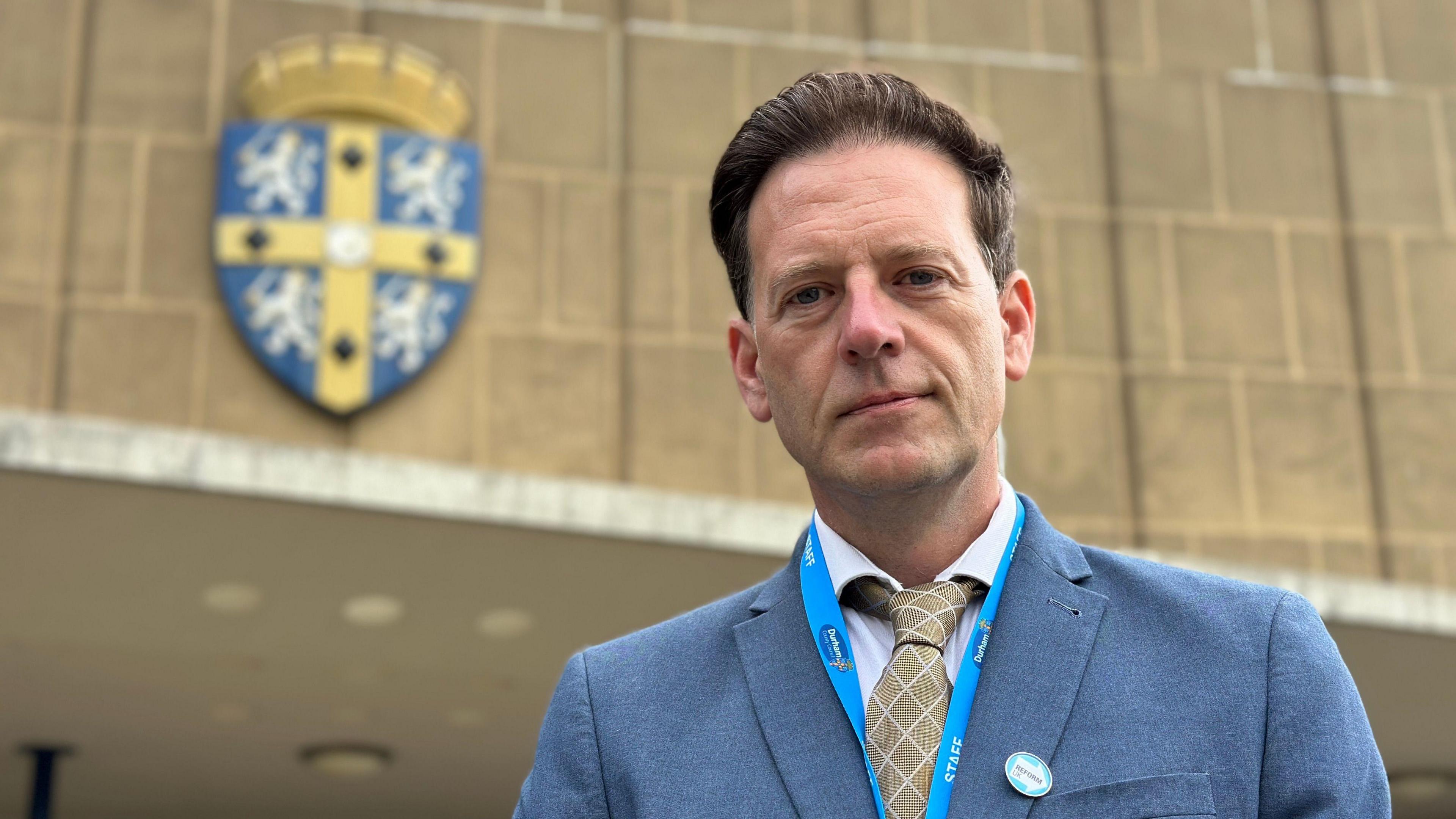Will new incinerator deal go ahead?

The Tees Valley Energy Recovery Facility is expected to open in 2029
- Published
A controversial incinerator looks likely to be built after months of uncertainty over whether some of the councils involved would pull out of a deal.
The Tees Valley Energy Recovery Facility (TVERF) would take household waste from seven council areas in the north-east of England and convert it into energy.
Financial close on the project, marking the final signing of contracts between the councils and operator Virador, is expected in early 2026.
It would pave the way for full construction to begin later that year.
What is TVERF?
The TVERF facility would burn residual waste from households in the Darlington, Hartlepool, Middlesbrough, Newcastle, Redcar and Cleveland and Stockton council areas.
Residual waste is the rubbish left over after recycling, such as nappies, matches and some plastics.
Up to 450,000 tonnes of the waste per year could be burnt at the site which would then generate electricity to power the plant or be exported to off-site electricity networks.
Where will the incinerator be?
The facility will be built on a 22-acre plot on the Teesworks site in Redcar, on part of the former British Steel works at Grangetown.

The facility will be located at the Teesworks site in Redcar
When will it be built and start burning waste?
Some construction work at the energy-to-waste facility's access points has already taken place.
If the deal is signed off as expected early next year, construction will get under way in 2026.
It is anticipated Virador will get a 29-year contract to design, build, finance and operate the facility, with the potential to extend by a further 11 years, in a deal that has been valued at more than £2bn.
TVERF is expected to be commercially operational in 2029.
What are the environmental concerns?
Rubbish will be delivered via road by HGVs and refuse collection vehicles from as far as 80km (50 miles) away.
Concerns raised include:
Pollutants and planet-warming greenhouse gases being released in an area already heavily affected by air pollution
Increased traffic delivering waste to the incinerator
It could become a "distraction from increasing recycling" in the council areas
The contract is long-term and similar deals around the country have been restrictive
The Environment Agency granted Virador a permit in July.
The public body said it was satisfied the operator had appropriate systems in place to operate the incinerator without causing harm to the environment, human health or wildlife.
TVERF said the project would not have a "significant impact" on congestion.

Activists have campaigned for years against the building of the TVERF
Is the incinerator safe?
Modern, well-run and regulated incinerators are not a "significant risk to public health", the UK Health Security Agency (UKHSA) previously said, external.
However, it was not possible to rule out adverse health effect completely, but any potential effect on people living close by was likely to be very small, the government agency added.
Will the project actually go ahead?
TVERF said the parties were working through final contract details and that it expected to complete the deal "early in 2026".
The facility has all necessary planning permissions and environmental permits to operate.
When Reform took control of Durham County Council earlier this year, it said it would pull out of the "horrible deal" but later said it would press on following changes to the business case.
Similarly, Newcastle City councillors voted to pull out but its Labour cabinet then committed to staying because of "unconscionable" penalty costs for quitting the agreement and a lack of alternative waste disposal routes.
Who is paying?
In simple terms, the seven partner councils.
But the contract is structured in a way that Viridor would run the facility and recoup costs from the councils through an agreed-upon "gate fee" per tonne of waste, TVERF said.
Fifty permanent jobs would be created once operational, with up to 700 created during construction, it added.
Follow BBC North East on X, external, Facebook, external, Nextdoor and Instagram, external.
Get in touch
Do you have a story suggestion for BBC Tees?
- Published1 November

- Published27 October

- Published4 October
